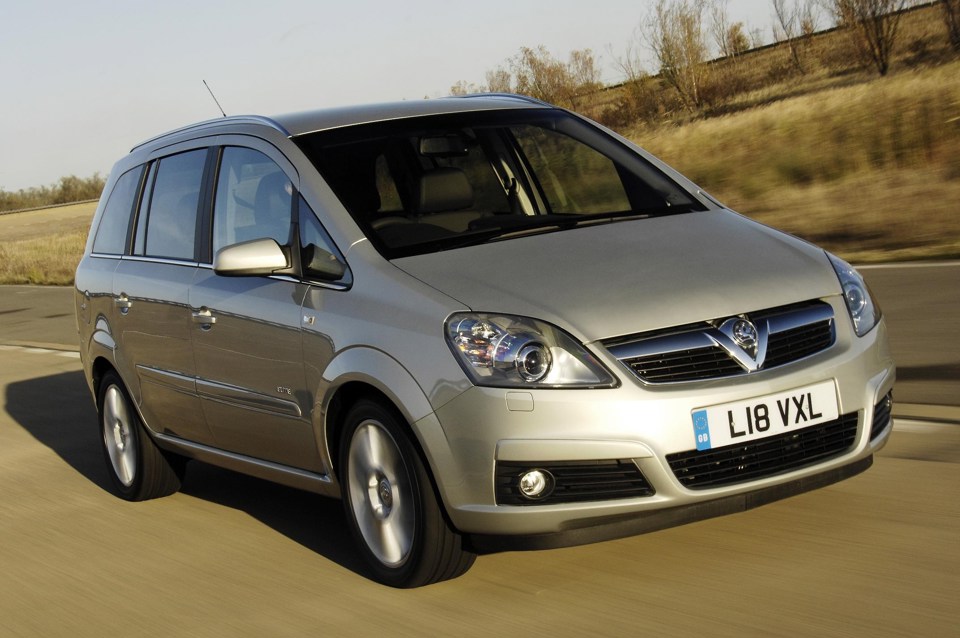Vauxhall was too slow to begin a full investigation into fires affecting Zafira B models and too quick to attribute them to improper and unauthorised repair, say MPs on the Transport Select Committee.
In 2015, Vauxhall’s Zafira B model became a cause for concern when a distinctive pattern of fires was identified. Some of the fires were serious enough to destroy entire vehicles and cause damage to the surrounding environment.
Although the Model B Zafira was no longer on the market by the time Vauxhall became aware of the fires, the company sold more than 230,000 Model B Zafiras with manual or no air conditioning between 2005 and 2014.
A report by the Transport Committee which is published today says that the decision to continue to let people drive affected cars, once it knew that vehicles already recalled still caught fire, amounts to a reckless disregard for safety.
The DVSA, says the report, should have taken action more quickly.
The Committee is critical of the decision not to perform independent testing as part of initial investigations. It says more must be done to ensure that the DVSA is able to take proportionate and effective enforcement action to ensure vehicle safety.
Committee chairman Louise Ellman said: “In this inquiry, we heard how one car manufacturer was too slow to acknowledge drivers’ concerns, too slow to begin an investigation, too slow to address the causes and too slow to alert drivers of real safety concerns. Drivers and their families were needlessly put at risk.
“The current voluntary approach to recalls is not robust enough. The DVSA must be given enforcement powers to compel manufacturers to act should it need to do so. This will ensure that drivers can have full confidence in the recall system."
Ellman continued: “Despite Vauxhall blaming the fires on unauthorised repair by third parties, no effort was made to find out where this may have taken place. The DVSA should consider how information to prevent improper and dangerous repairs can be collated for future vehicle safety issues.”
The current Code-based approach should be backed up by a credible threat of prosecution for a failure to comply with an instruction from the DVSA, says the report. The Committee also calls on the DVSA to seek assurances from Vauxhall that it has put robust processes and systems in place to deal with potential defects.
The Committee concludes that, as well as ensuring vehicles are safe to drive, the Department for Transport has a role to play in maintaining public confidence in any recall announced by a manufacturer. The Department cannot rely on manufacturers doing the right thing voluntarily.
Ellman said: “Our inquiry exposed gaps in the system for identifying potential safety defects and dangerous repair practices. Only a small proportion of Zafira fires were reported to either the DVSA or Vauxhall. Following a Facebook campaign and use of other media, the real story emerged.
"More needs to be done by motor manufacturers, the SMMT, the Retail Motor Industry Federation and its associations, relevant trade associations, insurers and others to encourage defect reporting.”
In a statement issued by the manufacturer, Vauxhall said it acknowledged it had learned lessons from the cases of fire in Zafira B models.
It continued: "We have made improvements to the way we investigate cases of vehicle fire and strengthened our recall process to ensure vehicle safety and to minimise customer inconvenience.
"While we recognise that undertaking two recalls was inconvenient for Zafira B customers, we maintain that the first recall was necessary based on our investigations and we were compelled to act with urgency based on the information available, notwithstanding the fact that further investigations were ongoing. As soon as we had identified the issue, we made it clear to customers in the recall letters how they should operate the heating and ventilation system to keep them safe."
Vauxhall told Fleet News it had made "very good progress" with the second recall, which provides a final fix to the problem. As of today 183,172 vehicles have had the second recall carried out and it has been working closely with DVSA as it completes the process.
It continued: “We welcome the Transport Select Committee’s backing for our call for greater collaboration between the automotive industry and insurers to improve the detection of faults.
“Estimates for the number of vehicle fires vary widely, ranging from 18,000 per year (AutoExpress) to 100,000 per year (fireservice.co.uk).
“We believe that by accessing information from insurers, manufacturers may be able to identify potential issues earlier than at present. By collecting data from insurers it will be possible to gain a much more accurate picture of the number of fire cases and how they relate to specific models.
“Whilst the data will not reveal the causes of fire, it can nevertheless play an invaluable role in alerting manufacturers to potential issues much earlier than is possible at present."
It concluded: “As our experience with Zafira B shows, and as the Transport Select Committee acknowledged, manufacturers have limited visibility of fires in their vehicles. Many Zafira B fire cases, for example, were reported to Vauxhall several years after they took place and only as a result of publicity in October 2015.
"We apologise to anyone who has experienced anguish or distress as a result of this incident. Nothing is more important to us than safety. We go to enormous lengths to maintain the safety of our vehicles and we have strengthened these processes further as a result of the learnings from Zafira B."





















David Kershaw - 28/04/2017 16:54
Recalls- Please read my letter dated 2007 for solutions to these issues!! http://www.fleetnews.co.uk/news/2007/2/27/vehicle-recall-disorder-puts-lives-at-risk/24163/